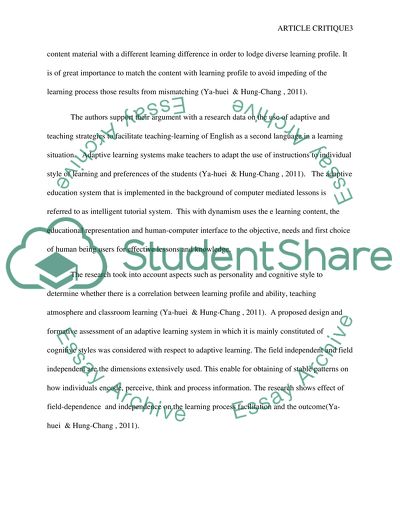Cite this document
(“Adaptive learning for ESL based on computation Research Paper”, n.d.)
Retrieved from https://studentshare.org/education/1395772-adaptive-learning-for-esl-based-on-computation
Retrieved from https://studentshare.org/education/1395772-adaptive-learning-for-esl-based-on-computation
(Adaptive Learning for ESL Based on Computation Research Paper)
https://studentshare.org/education/1395772-adaptive-learning-for-esl-based-on-computation.
https://studentshare.org/education/1395772-adaptive-learning-for-esl-based-on-computation.
“Adaptive Learning for ESL Based on Computation Research Paper”, n.d. https://studentshare.org/education/1395772-adaptive-learning-for-esl-based-on-computation.


